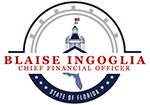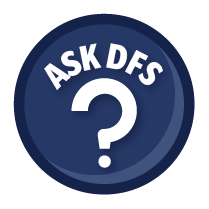Commercial Insurance Coverage Disaster FAQs
Select the desired option below.
If a Comprehensive Glass Insurance policy/endorsement was purchased they are covered. However, there may be certain conditions which must be met for coverage to apply. Such as, a requirement to have hurricane shutters or the use of a specific grade of plywood to cover them at specified times.
The inventory of vehicles for sale should be covered if the automobile physical damage coverage is purchased. The cause of loss may be specified in the policy. Such coverage is sometimes known as “Dealers Open Lot” and may protect against theft, vandalism, fire and other types of perils.
The damage to the employees’ vehicles would be covered by their own individual policies, if they have purchased physical damage coverages.
If wind is not an excluded peril and there is no specified exclusion, then coverage will exist.
Food spoilage is not generally covered in a commercial property policy unless coverage is specifically purchased. BI coverage may cover your loss of income and other business expenses such as employee wages while the business is closed. Perils like flooding, earthquakes, mudslides, viral outbreaks and pandemics are generally excluded. Coverage for some of these can be purchased by endorsement or via a separate policy.
Often an Extra Expense coverage is also purchased in conjunction with BI. This covers extra expenses incurred by the business to allow them to continue their operations, such as cost of moving and setting up a temporary location.
Essentially, the BI coverage is intended to pay for normal continuing business operating expenses, while the Extra Expense coverage pays for costs that are incurred beyond the normal operating expenses.
Sometimes the policies will show separate limits for Business Interruption, Extra Expense and Loss of Income.
Generally, there is no coverage for loss of income that did not result from direct physical damage to insured property.
Most Business Interruption policies contain coverage for loss incurred due to orders issued by the civil authorities. The time duration may be limited, and certain criteria may need to be met such as, complete prohibition of the access to the insured premises, close proximity of physical damage to the insured premises, damage caused by a peril covered in the policy.
Business Interruption coverage is not a mandatory coverage under the Florida laws. Therefore, it will depend upon the company's policy forms filed with the Office of Insurance Regulation. Business Interruption coverage may be provided under both the BOP and CPP.
Business interruption coverage isn't required; therefore, it will depend upon the company's policy forms filed with the Office of Insurance Regulation. Business interruption coverage may be provided under the BOP and may be provided under the CPP. If the policy is written to exclude wind the business interruption coverage would also be endorsed to exclude business interruption losses caused by wind.
Builder's risk policies are named peril policies. Rain is not a named peril in the contract. However, there could be limited coverage for materials located at the job site damaged by rain, if included by endorsement. Wind damage should be covered by the policy, subject to other contractual provisions. Some policies require the construction to be at a certain stage, i.e. 50% or 75% of completion before coverage applies for wind.
Most companies underwrite the types of risks where they can pool a large number of similar risks together. This is called “risk sharing” or “risk distribution”. The responsibility of payment of the loss of a single member is shared by all other participants of the pool. The companies who underwrite such pools of businesses are known as “admitted’ or “authorized’ insurers. They must obtain a certificate of authority from the Florida Office of Insurance Regulation (FLOIR) and only use rates and policy forms that are approved by the FLOIR.
If the nature of the risk is unusual or high hazard, these companies may be unwilling or unable underwrite it. When this occurs, the Surplus Lines (SL) companies can step in to provide the protection needed,
The SL companies must obtain a letter of eligibility from the FLOIR. The rates and forms are not approved by the FLOIR. This allows the SL companies flexibility to tailor the coverages and rates according to the unique characteristics of the risk presented.
A list of SL companies can be found at FLOIR SL Company Search.

